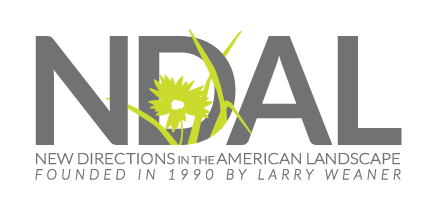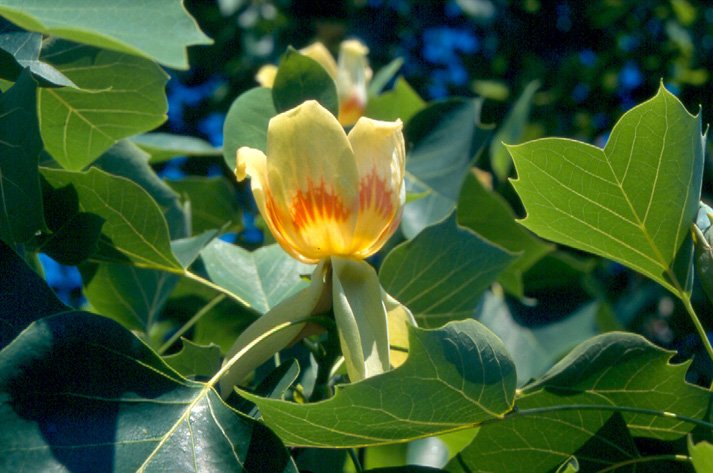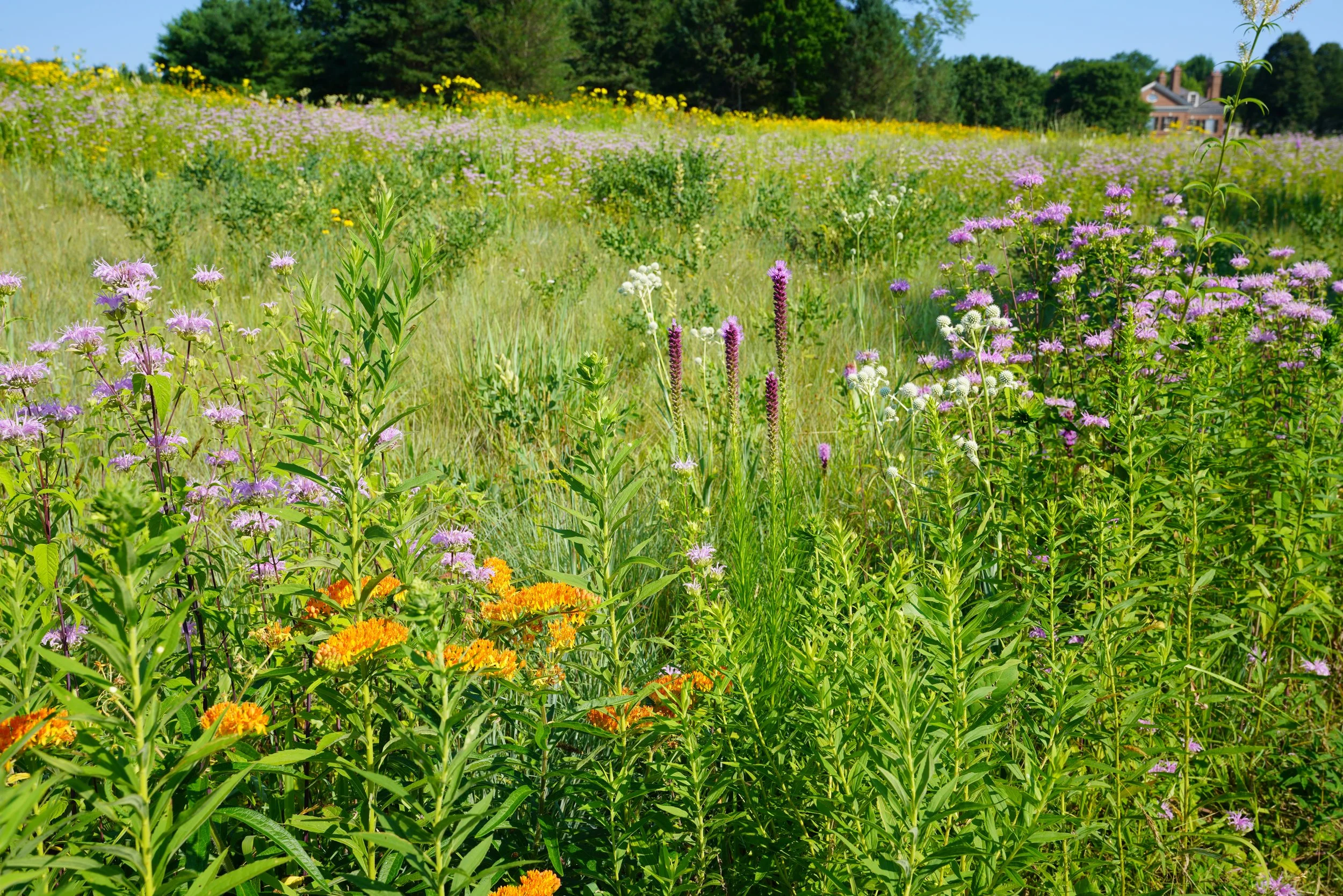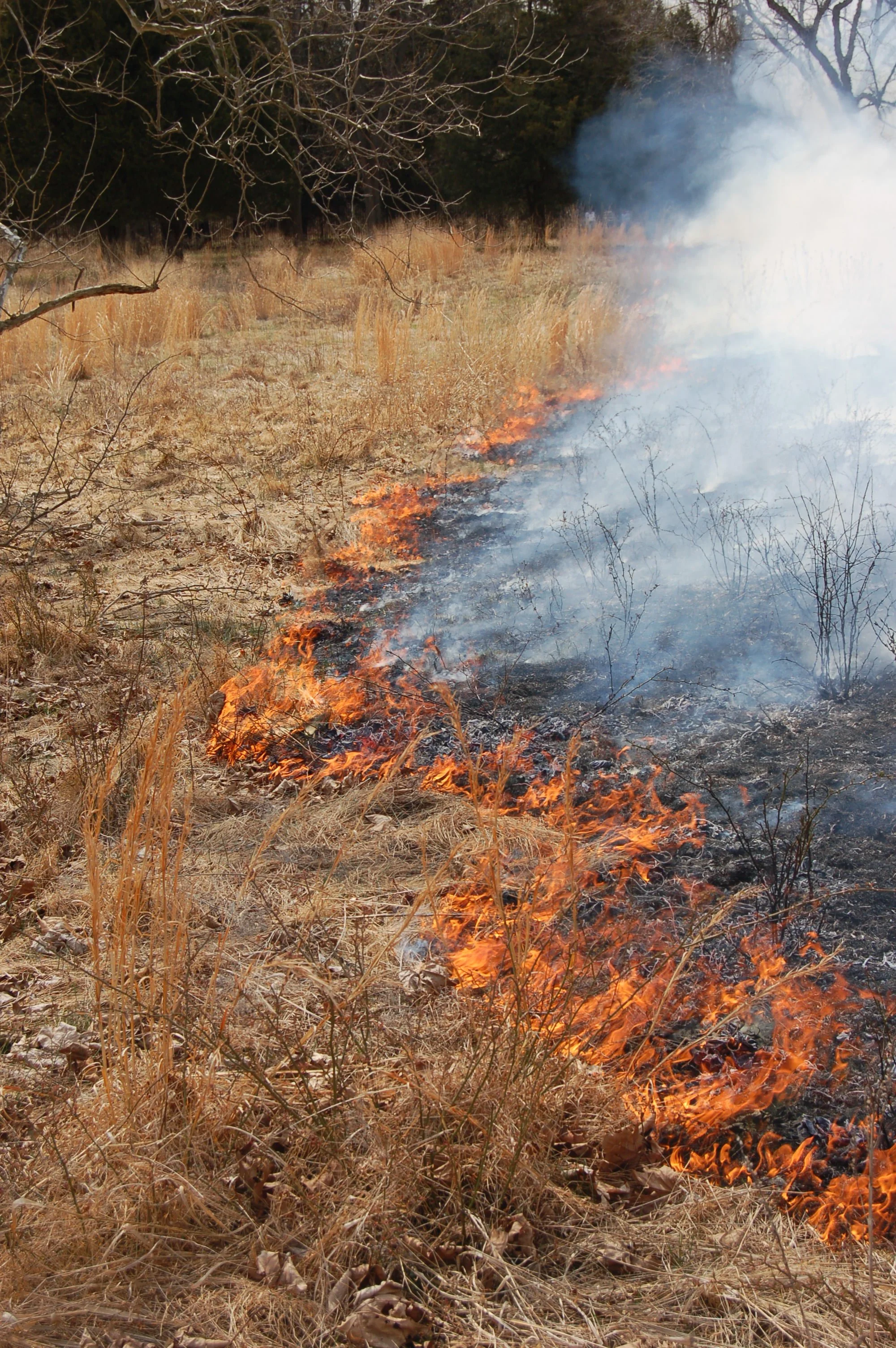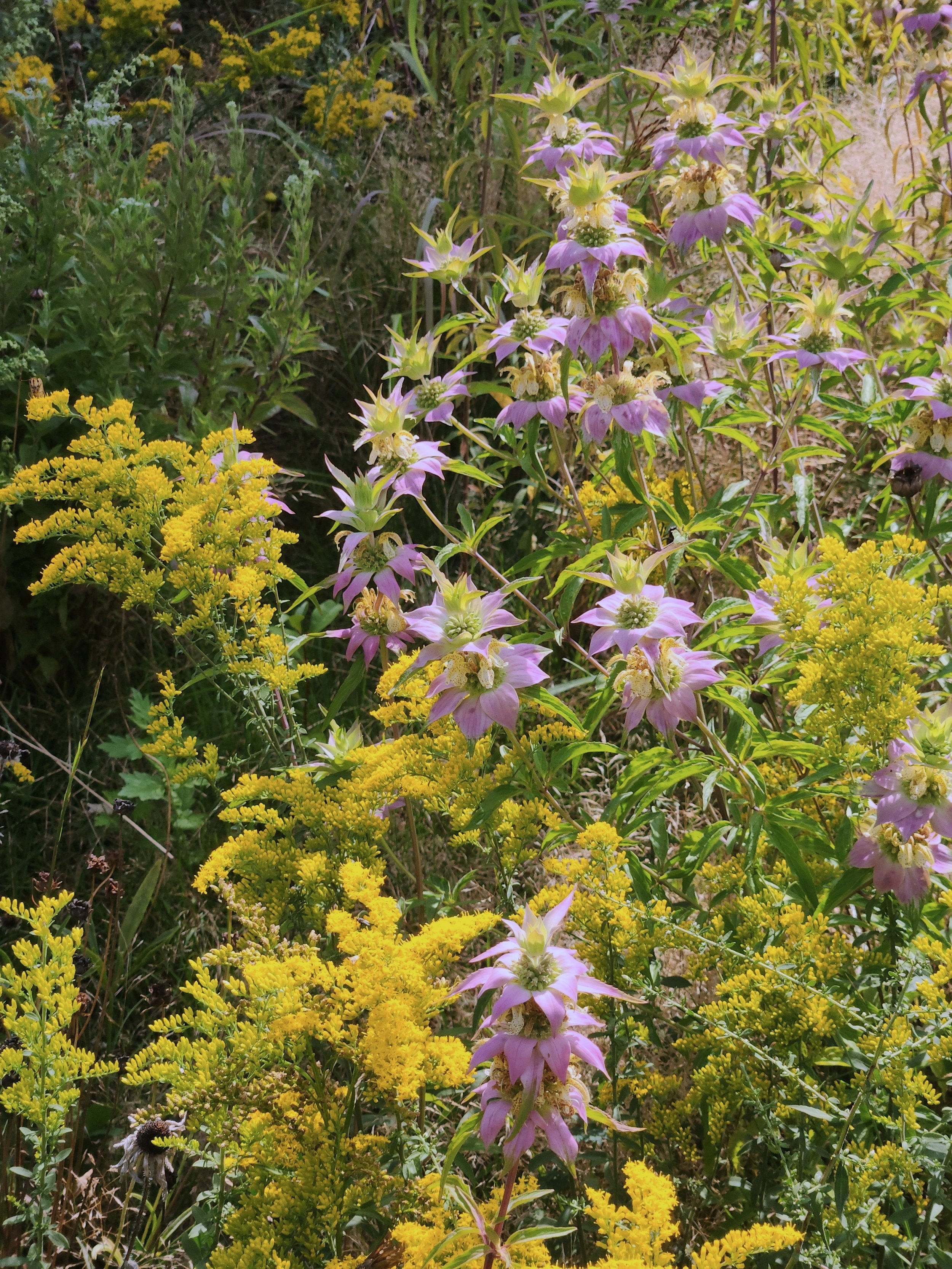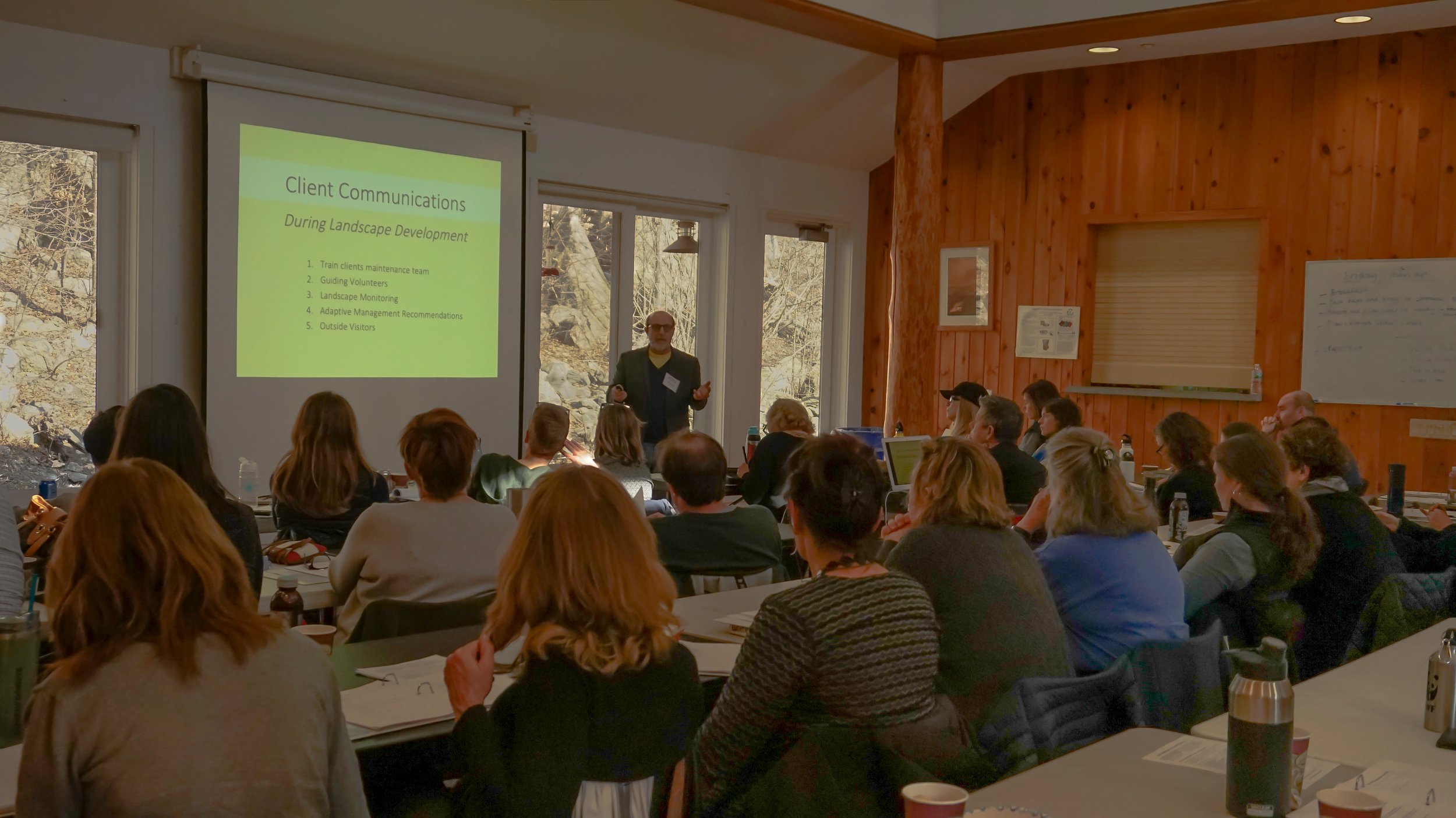
Scheduled
Professional Programs
What’s on the horizon:
NDAL In the Field:
Upcoming In-Person Professional Programs
37th Annual NDAL Symposium
Seeing the Forest and the Trees
Designing Landscapes that Integrate
Regional Specificity with Global Commonality
Save the date! January 15th & 16th, 2026
Ecology-based Landscape Practice:
A 7-Part Intensive Course
July-August 2025
Upcoming:
Previously held:
(recordings viewable for 3 months)
Fall Virtual Education Series:
Individual Professional Sessions
Upcoming:
Free Q&As!
Garden Chats with Larry
Get your questions answered by Landscape Designer Larry Weaner. Ask anything related to ecology-based gardening and landscape practice.
